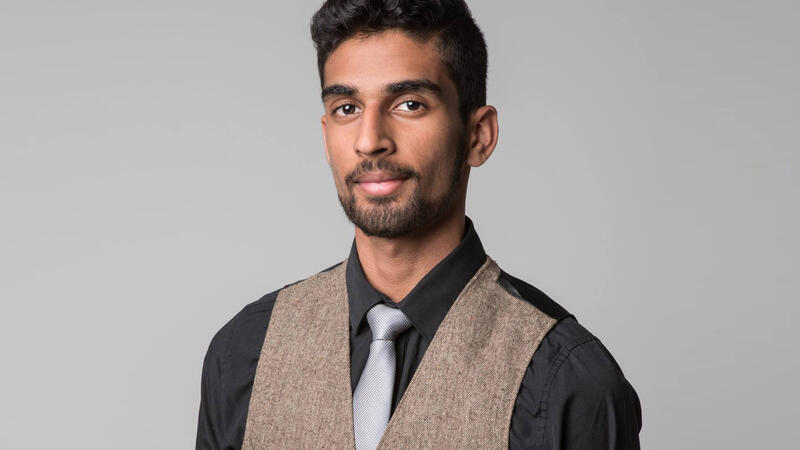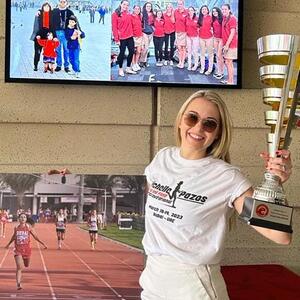
College: Northeastern
Occupation: Student, CEO
Current City: Boston
As a young man growing up in Dubai, surrounded by desert, Abhishek Balakrishnan went through a paleontology phase, and dreamed of digging up dinosaur bones for a living. But by the time he was a high school student at ASD, he had other big plans: He knew he wanted to start his own business. With a strong foundation in both academics and other business skills such as public speaking, and inspired by major corporations like Microsoft and Patagonia that build social good into their mission, Balakrishnan says he had aspirations of identifying a challenge that a lot of people struggle with, developing a strong team of smart colleagues, and getting to work changing the world.
Now in his fifth and final year of a Marketing, pursuing an Entrepreneurship and Innovation degree at Boston’s Northeastern, he’s been tapped for the prestigious role of CEO at IDEA, a student-led organization that connects student entrepreneurs with resources and support to launch their start-ups, from legal and accounting services, to mentorship, to relationships with venture capital accelerators and angel investors.
Managing a team of 40, Balakrishnan’s role as CEO is full-time for the first half of this year, and part-time next semester when he’ll need to balance the workload with classes.
“It’s nuts running an organization, working 70 to 80 hours a week, getting people motivated, balancing your work life, managing the organization’s operations and vision, wearing multiple hats, making sure individuals on my team have the support they need, making sure I have time to do the strategic part of the job and meet with investors…”
How on Earth, I ask Balakrishnan, does he manage his time to feel productive while still hanging on to his sanity and making time for himself? Luckily, he has some pointers.
First: Get a morning routine.
“Having a morning routine really does set up the day for you. Having three to four things you know you’re going to do consistently, that are small wins, right off the bat knowing you’ve accomplished in the morning.”
For Balakrishnan, that simple but consistent morning routine involves, making the bed, going through his calendar to see what he needs to prep for that day, devoting a half hour to reading a book, and going to the gym.
“First thing, you do something for yourself, because you’ll spend the rest of the day doing something for everyone else.”
At the end of the day, Balakrishnan says, his colleagues may be tired and unmotivated, without the time or energy to cook or read or whatever activity would give them a little control over the day.
“If I accomplish these small things in the morning, no matter how my day went, I can go to bed thinking, at least I got my workout in. If I come back home ready to pass out, at least my bed is made. When the hours are super crazy and every day is different, I know I have something consistent.”
Second: Make time to make contacts.
Another critical lesson Balakrishnan says he’s learned from working with start-up founders is that it’s important to meet new people and broaden your perspective, no matter how busy you are. “A lot of times founders have their heads down and just start working and working and working. But, I’ve seen some of them shorten their learning curves and make progress faster when they realize they can learn from someone who's done all this before,” Balakrishnan says.
“I think one of the best things you can do is try to meet four or five new people from your industry or hobby every month.”
Third: Gather wisdom from all sources!
Atomic Habits: An Easy and Proven Way to Build Good Habits and Break Bad Ones, by James Clear, deals with how to set up small wins for yourself that accumulate into a bigger goal you have, Balakrishnan says. “When it comes to setting big goals for yourself, this book helps you understand things you can do that are no-brainers, and how if you do these small things now, it can help you gradually change your habits and achieve your goals.”
With strategies like these, Balakrishnan is barreling toward his post-graduation plan: Joining an accelerator in Boston, San Francisco or New York to help to launch new businesses.
- Alumni



